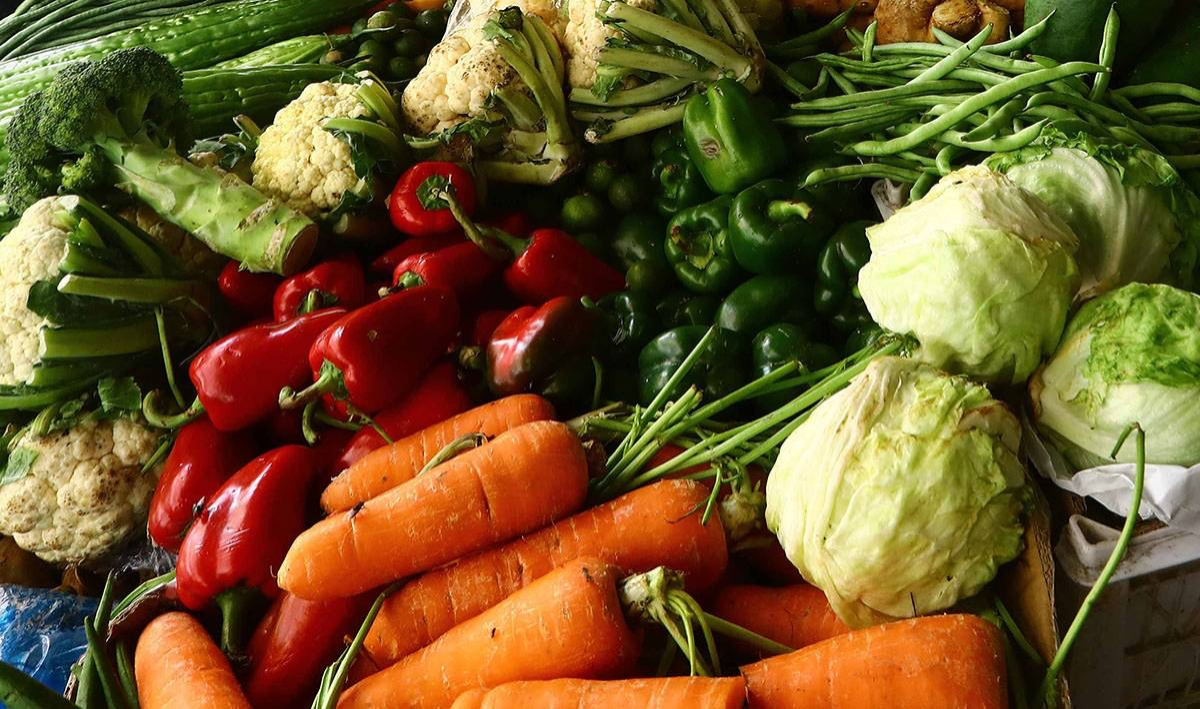Vegetables. File photo.
Rice, vegetables, and meat are the three most wasted foods in Filipino households, a study by the Department of Science and Technology-Food and Nutrition Research Institute (DoST-FNRI) showed.
The 2018 Expanded National Nutrition Survey found that households with the highest rice consumption were more likely to have rice wastage than households with low consumption.
The highest rice wastage was found in households with five or more members, those residing in rural areas, and in households with a head whose age ranges from 50 to 69 years old.
Households with the highest vegetable consumption are also likely to have a bigger vegetable wastage than those with the lowest consumption.
“This implies that households incur more wastes when higher quantities are purchased, which most probably are not consumed and end up being thrown away due to spoilage,” the FNRI said.
Households with five members or less had a greater chance of wasting vegetables, but were less likely to have fish, meat and poultry plate wastage than households with more than five members.
In terms of income class, households in the highest one-fifth category or quintile had greater plate wastage than the poorest quintile.
Those in higher-income households consume diets that tend to have more perishable items, and the wastage is due to food spoiling before the household could eat it.
FNRI Director Dr. Imelda Angeles-Agdeppa said millions of poverty-stricken Filipinos who are experiencing food insecurity are struggling to be fed, and the food that is being thrown away or being discarded might actually be enough to feed them.
The Philippines ranks 69th among the 119 countries in the Global Hunger Index of 2018, suggesting a “serious level of hunger incidence.”
Agdeppa said the results reinforce the need for new strategies to focus on reducing plate waste, which is beneficial from a nutritional, economic and environmental point of view.
The study also suggested that training people to prepare and select less food in terms of portion and meal size reduction and formulating policies on waste reduction could be an effective strategy for preventing additional food waste.
Agdeppa said the government and the private sector both have a role to play in addressing global food shortages and food waste, considering that more people are getting hungry globally despite the availability of food that is sufficient for everyone.
The study, conducted from February to December 2018 and covered 20,151 households, characterizes the health and nutritional status of the Filipino population, the FNRI said.

